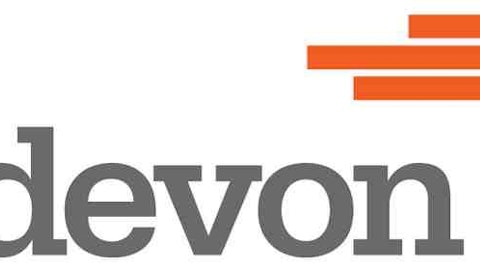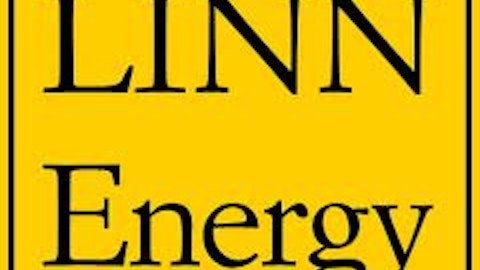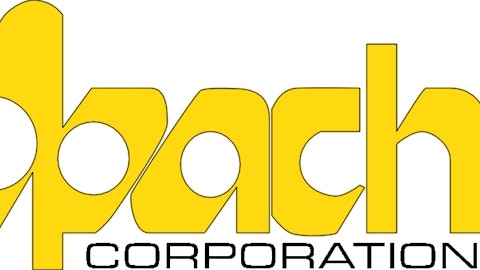
Making money from Marcellus gas
Cabot Oil reported its 4Q 2012 and 2012 annual results and they trounced analysts’ expectations. Expectations had been bearish, but any concerns were crushed by Cabot Oil & Gas Corporation (NYSE:COG) earning 27 cents a share, well over the 22 cents a share consensus. More good news came from the natural gas reserves front. Cabot reported its 2012 year end reserves increased 27% over 2011. And that growth was all organic. Gas production rose 43%, oil production rose 67%, cash flow increased 30% and revenue cleared $1 billion for the first time in the company’s history. Its findings costs were the lowest in the company’s history.
And the future? Cabot revealed a $1 billion capex program focused mainly on its Marcellus shale gas play with approximately $300 million dedicated to its oil plays in Oklahoma and Texas. Analysts have raised expectations for gas production, earnings and stock price. Cabot projects a 35 to 50% increase in production for 2013. Any wonder Cabot stock rose more than four points in four days?
In stark contrast, Devon Energy (NYSE:DVN) reported a loss for the 4Q 2012 and the 2012 fiscal year. Much of the loss stemmed from asset impairment charges. While Devon increased oil, natural gas, natural gas liquids production, revenues fell. Midstream operations contributed to corporate finances, but not enough to offset the impairment charges.
While Devon transitions from a largely natural gas producer to a more balanced oil and gas energy company, the company has increased dividends (current yield around 1.5%) and repurchased shares. Give them some credit, Devon seems to understand the concept of shareholder value. On the other hand, over 900,000 shares were sold by insiders over the past six months; not an encouraging sign.
While Devon Energy Corp (NYSE:DVN) transitions, Linn Energy LLC (NASDAQ:LINE) progresses
Linn Energy reported impressive results recently. Earnings rose 40% for the year and distributions grew with it. Organic production growth and acquisitions contributed to the company’s financial performance. Lease operating expenses declined, reserve replacement was 150% before acquisitions, and $2.9 billion in acquisitions and joint ventures seem to have largely paid off. Investors have benefited from it all with courtesy of Linn’s 7.6% distribution and steady distribution growth.
To me, the big news centers on future plans. The company plans $1.1 billion in capex for 2013 with approximately 35% of that focused on its lucrative Granite Wash oil play. The purchase of Berry Petroleum gives Linn Energy LLC (NASDAQ:LINE) exposure to California oil plays, an additional $300 to 500 million in capex and should allow for a larger distribution but a lower distribution payout ratio. Corporate executives in no way ruled out future acquisitions in 2013.
All these activities indicate Linn Energy LLC (NASDAQ:LINE) should produce 10 to 15% more oil and gas in 2013 compared to 2012. Add to this the company’s hedging activities, and you have a company well positioned to deliver higher revenues and distributions to its investors. For those not wishing to deal with a Form K-1 at tax time, investing in LinnCo (NASDAQ:LNCO) will get you Linn’s growth benefits, a slightly lower dividend, but a less onerous Form 1099.
Another way to play Marcellus shale gas
If you blanch at the idea of paying 100 times earnings for Cabot Oil & Gas Corporation (NYSE:COG), an alternative way to play Marcellus shale gas is Williams Partners L.P. (NYSE:WPZ) limited partnership. This partnership, wholly owned by Williams Companies, is a major player in Marcellus shale gas transport and a significant partner with Cabot, among other customers. According to the Cabot Q4 2012 conference call, Williams is expanding its natural gas transportation capacity with major expansion due for completion in 2015. So far, everything is on schedule. There are particularly high hopes that the Constitution pipeline will add to both Cabot’s and William’s revenues.
What does Williams offer investors besides a less expensive stock? Distributions, namely a 6.7% yield. The capital gains angle has been disappointing for the past two years but dividends have steadily increased during this time. As I see it, if Williams continues to ship a growing volume of Marcellus gas from Cabot and others, its revenues and distributions should grow.
Final Foolish Thoughts
Financial momentum is a beautiful thing and right now, Cabot Oil & Gas Corporation (NYSE:COG) and Linn Energy LLC (NASDAQ:LINE) have it. Of these two, Cabot is the investment for capital gains and Linn for income. Yes, Cabot sells at a steep premium, but it has low production costs and great production growth. If the stock dips on a general market sell off, that’s a buying opportunity. Linn rolls on with both organic and acquisition growth. Linn also grows its distributions. Devon may be a turn-around investment as it re-aligns its production to a higher oil mix and trades near four year lows. But buying Devon means paying a premium for hope; I personally want to see results instead.
The article 2 Energy Winners, and Another Way to Play Marcellus Gas originally appeared on Fool.com and is written by Robert Zimmerman.
Copyright © 1995 – 2013 The Motley Fool, LLC. All rights reserved. The Motley Fool has a disclosure policy.




